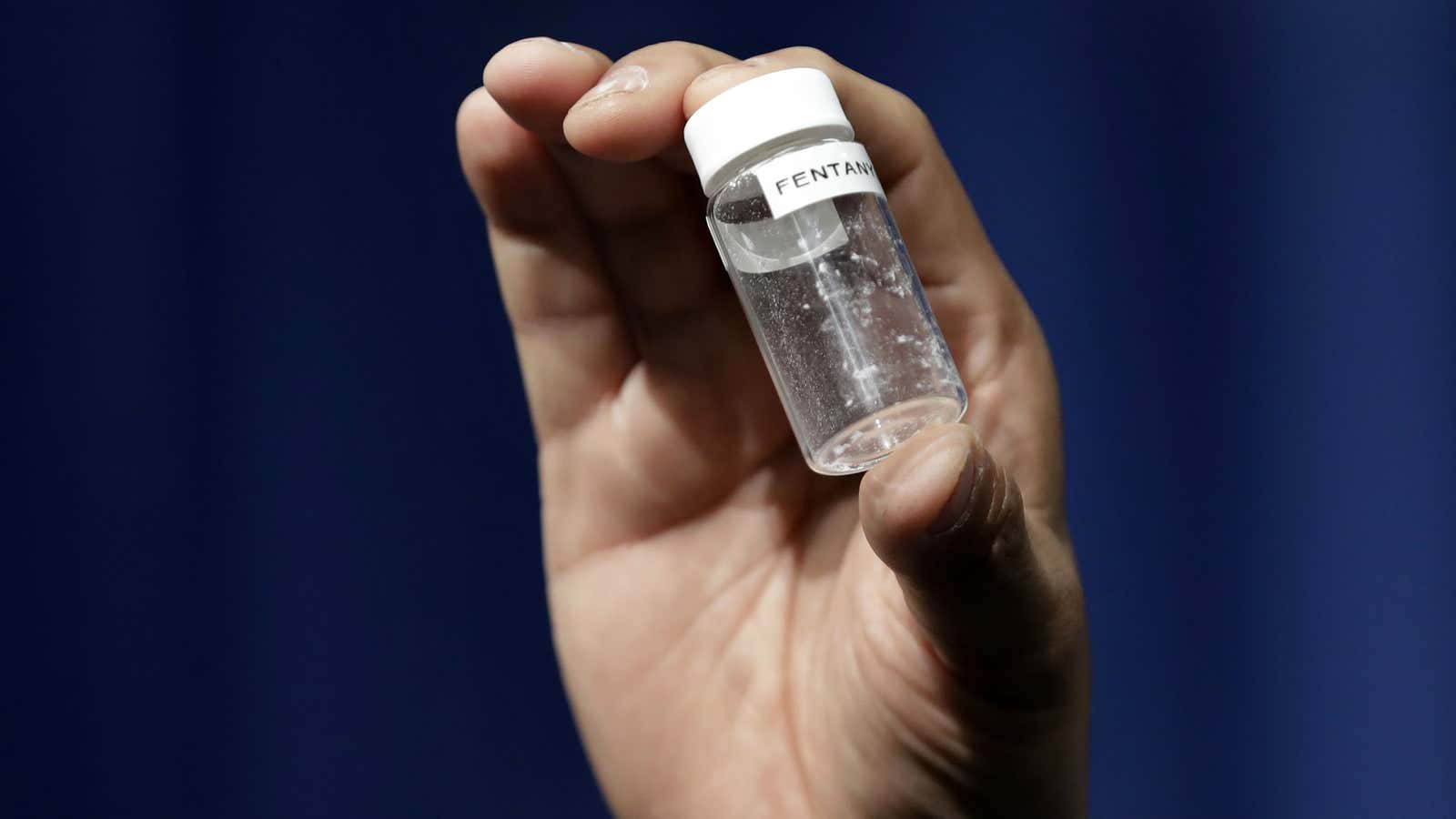The family of drugs that have given local morgues more business than they can handle may have finally found a place in America on death row.
Nevada, which hasn’t executed an inmate since 2006, is planning to administer a combination of a sedative, a paralytic drug, and fentanyl to a convicted killer. Scott Dozier, found guilty of a gruesome murder in 2002, was supposed to be face the death penalty last month. His execution was delayed when a district court judge, Jennifer Togliatti, expressed concerns that the paralytic wouldn’t allow Dozier to demonstrate if he was in pain.
And in Nebraska, officials have plans to carry out their first fentanyl lethal injection of Jose Sandoval, a man convicted of leading a fatal bank robbery. Sandoval would also be given medication to stop his heart, so fentanyl would not necessarily be the drug killing him.
Fentanyl, a synthetic opioid, is supposed to be used only in patients who have just undergone surgery or are experiencing significant pain related to late-stage cancer. It’s about 50 times stronger than heroin—so potent that it has caused SWAT teams to reevaluate how they handle busts to keep officers safe from accidental ingestion. Between 2013 and 2016, US deaths related to fentanyl overdoses increased by 450% (paywall), reaching over 20,000 deaths that year.
The retreat of the drug companies
In the 31 states that still allow capital punishment, only 23 inmates were put to death this year—the second fewest in 25 years, the Washington Post reports (paywall). One of the biggest reasons for the decrease: There simply aren’t enough of the typical lethal-injection drugs available. These drugs are administered either in fatally high doses or as cocktails of drugs that are normally used therapeutically.
In recent years, pharmaceutical companies haven’t wanted their names associated with executions. In May, Pfizer prohibited the use of its drugs for the death penalty, the last company to do so, which brought the number of drugs approved by the US Food and Drug Administration available for executions to zero. Nevada prisons tried to take bids for drug companies earlier this year for a drug they could use, but none were offered.
Why fentanyl has appeal
Logically, fentanyl is probably the best remaining option. Like all opioids, it’s a depressant, and kills by slowing down breathing. It’s lethal in incredibly small doses. A single microgram—or a millionth the weight of a paper clip—is enough, the Guardian reports. And perhaps most importantly, fentanyl is still readily available from wholesale distributers. “We simply ordered it through our pharmaceutical distributor, just like every other medication we purchase, and it was delivered,” Brooke Keast, a spokeswoman for the Nevada Department of Corrections, told the Washington Post.
At the moment, there’s some debate whether death by fentanyl would be humane, especially if it is administered with a paralytic, which may limit the prisoner’s ability to speak up if he’s in overhwhelming pain. Nebraska’s state supreme court still has to hear the case.
For his part, Dozier doesn’t want any sort of a lethal injection. He’s said that he’d rather die at the hands of a firing squad. “That would be my favorite way,” he told a friend, according to the Las Vegas Review Journal. “That would be the way to go, if it was up to me.”
